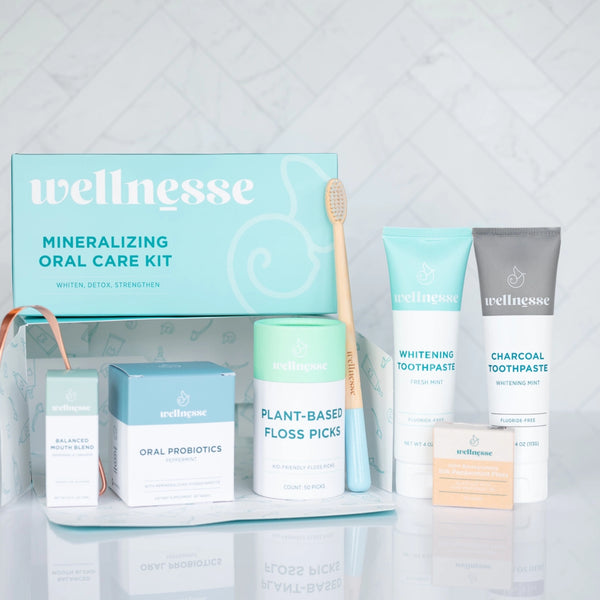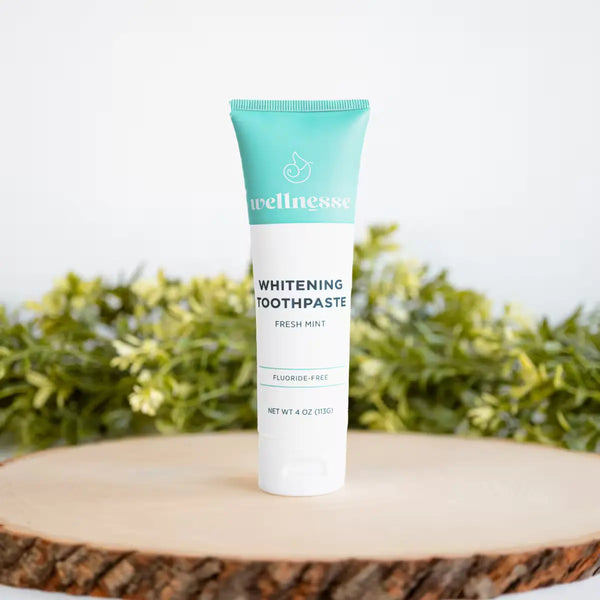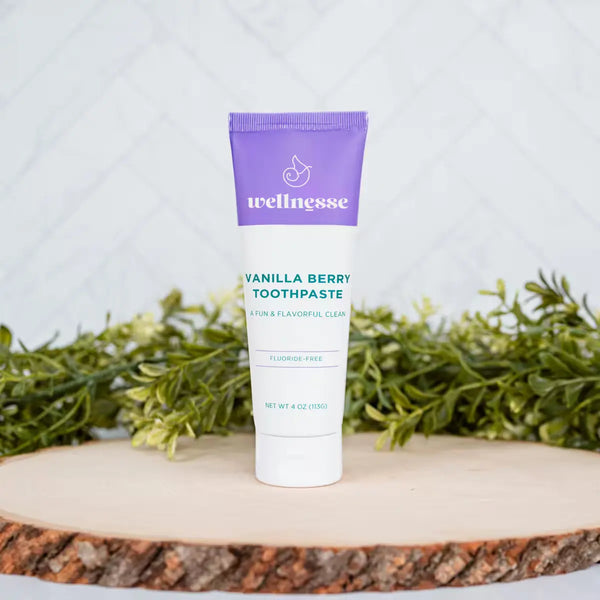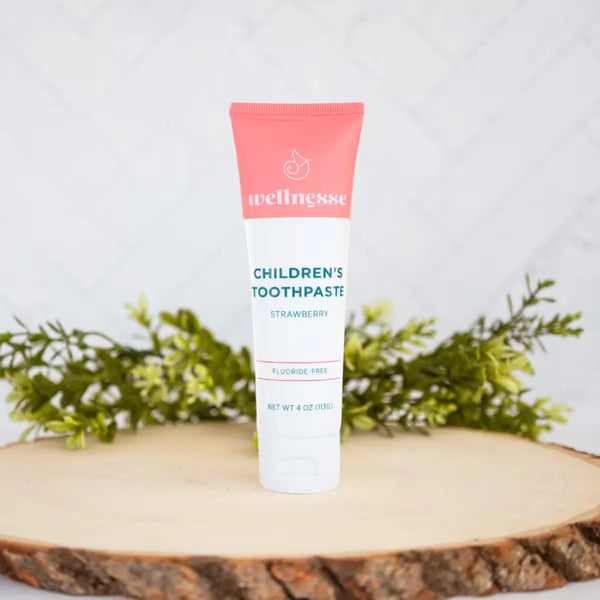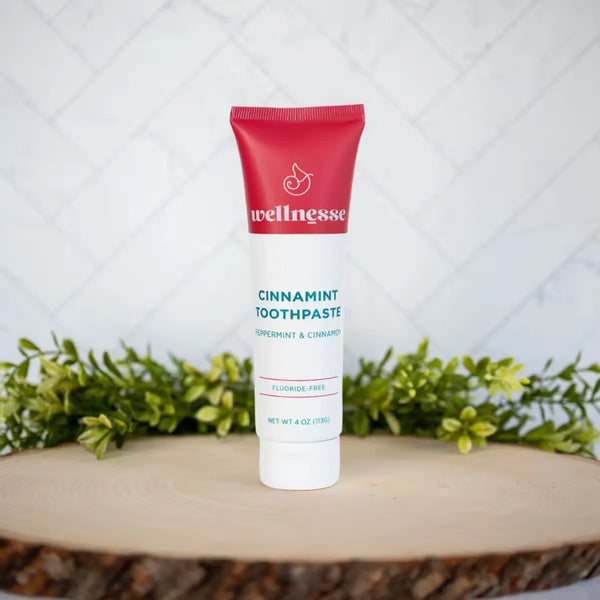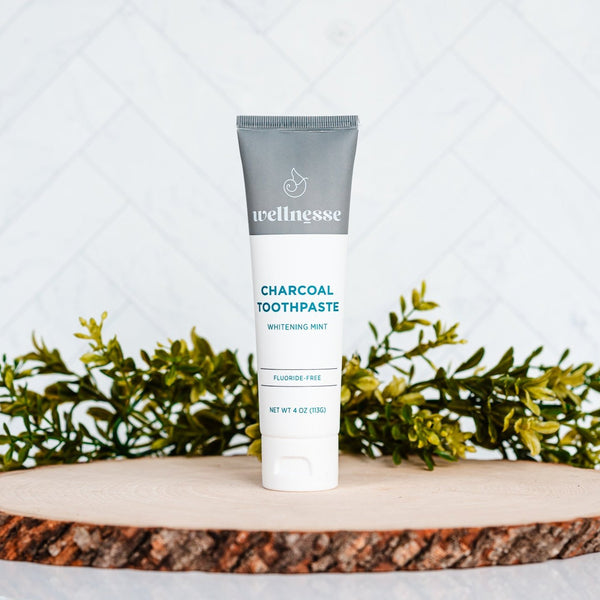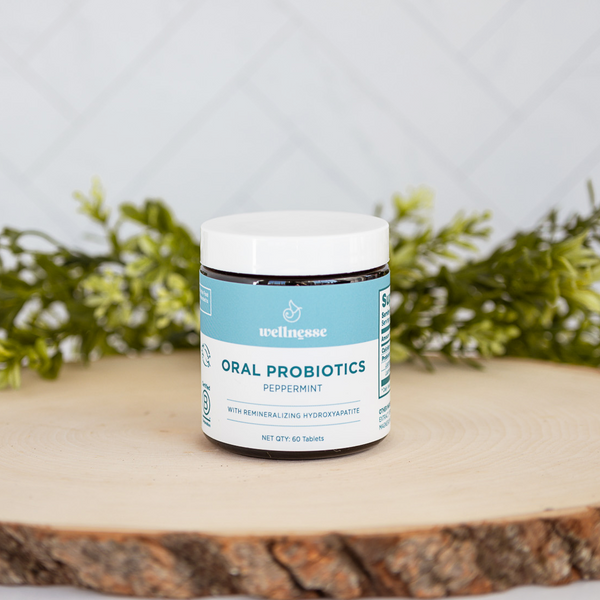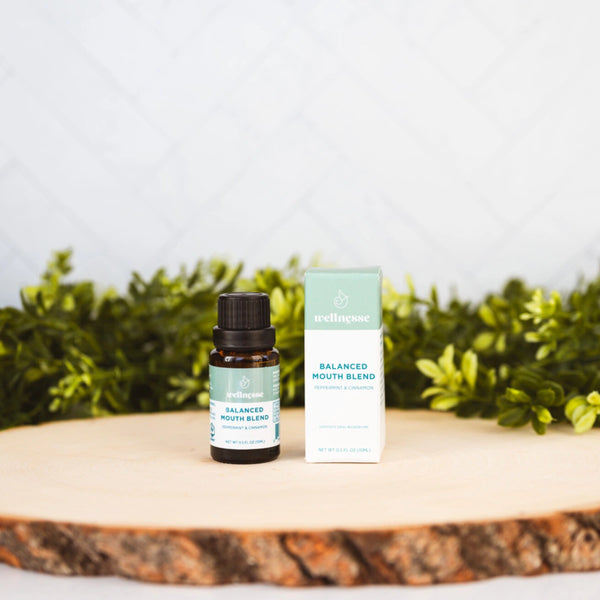You’ve probably got your oral care routine pretty dialed in. Brushing, flossing, and using a clean mouthwash are key for a healthy mouth! Taking good care of our teeth and gums sets up our mouth to be its best. When we take care of our mouth, it leads to stronger teeth, healthy gums, and fresher breath. Plus, it helps cut down on cavities and gum disease—definitely worth the effort!
But there’s another important factor in a healthy mouth that is often overlooked… and that’s proper nutrition. This means eating a whole foods diet rich in vitamins and minerals. These key nutrients are found in fruits, vegetables, healthy fats, and clean proteins and are responsible for many functions throughout our bodies.
Vitamin K2 is one of these important vitamins our body needs to stay in top physical health. It supports heart, bone, and brain health, but it’s also great for your smile! Research shows K2 can help remineralize teeth, reverse cavities, and promote a healthier mouth overall.
What is Vitamin K2?
Vitamin K2 is responsible for many functions in the body and provides a whole host of benefits. One key role of vitamin K2 is that it sends calcium to the right places (our teeth and bones) and away from the wrong places (our heart). The list of K2 benefits is substantial and well-researched.
Beyond telling calcium where to go, this vitamin also helps with many other processes in the body. Because it directs the calcium to the right places, it strengthens bones and teeth. This vitamin also helps reduce and even reverse heart disease by blocking calcium buildup in our arteries. It helps balance blood sugar. And it’s known to help lower your risk of certain cancers, including breast cancer.
K2 is essential to our diet and is found in animal products and fermented foods. You’ll find it in sauerkraut, grass-fed beef, pasture-raised chicken and egg yolks, raw grass-fed dairy, and organ meats.
Sadly, modern farming practices in the US have depleted our soil of the nutrients that were once there. Now, our foods have become less nutrient-dense. Eating according to the Standard American Diet makes it hard to get enough of the vitamins and minerals we need. Although you can add foods rich in K2 into your diet, it’s also a great one to supplement.
Vitamin K2 and Oral Health
The role of K2 in our oral health was discovered many years ago by Weston A. Price, a dentist in the late 1800s and early 1900s. He was interested in finding out the causes of tooth decay. He wondered why some cultures suffered from tooth decay and others didn’t. So he set to researching different cultures around the world with similar genetic backgrounds. The difference was that some lived in primitive-type societies and ate more primitive diets. Other groups ate diets that included more modern, processed foods. Through his years of studying these groups, he found a connection between their diet and dental health.
His findings showed that primitive-type societies had significantly less tooth decay, even in the absence of dental care. In contrast, those who ate more modern diets had more tooth decay. He didn’t know what this reason was and he called it Activator X. Years later, research found that this Activator X was actually K2. Vitamin K2 is one of 4 fat soluble vitamins and you need fat in order for the mouth to be at the proper pH.
Since Weston A. Price’s groundbreaking research, there have been countless studies on vitamin K2’s role in the body and the mouth.
What Does Vitamin K2 Do in the Mouth?
As we mentioned, vitamin K2 has many benefits to our overall health. This includes strengthening bones, reducing plaque buildup, and reducing inflammation. These benefits also help keep our mouths healthy.
Helps Prevent and Reverse Tooth Decay
The research from Weston A. Price shows a clear benefit of vitamin K2 in oral health. K2 helps the body absorb and use minerals like calcium and phosphate, creating a more minerally balanced mouth. And because teeth are able to more fully absorb these minerals, they’re less likely to decay (or demineralize). This makes cavities less likely to form. In addition, K2 can be used to remineralize (or heal) cavities that might have already formed.
Bolsters the Health of Our Gums
The CDC reports that gum disease affects about 4 in 10 adults over 30 in the U.S. This bacterial infection in the gums and tissues leads to swelling and bleeding, gum recession, and, if left untreated, tooth loss. By helping reduce inflammation, K2 is a strong factor in fighting gum disease. Even if you aren’t currently suffering from gum disease, it’s good to get more K2 in your diet to help keep gums healthy.
Promotes an Alkaline pH in Your Mouth
A healthy mouth requires a slightly alkaline pH level. This alkaline pH ensures that there are fewer bacteria in the mouth, which leads to stronger enamel. Saliva is key to creating a balanced pH because it helps neutralize acids and clean your mouth through a process called saliva buffering. Vitamin K2 helps increase saliva buffering to create healthier saliva, and a healthier mouth.
Balances Our Oral Microbiome
We’ve talked a lot about the importance of our oral microbiome — the community of bacteria residing in the mouth. These healthy bacteria are very important to our oral health. An imbalance in our oral microbiome can cause many oral health issues like cavities and gum inflammation. Research shows that vitamin K2 may decrease bad bacteria while increasing good bacteria, providing a positive benefit to the oral microbiome. Not only does a healthy oral microbiome mean better oral health, it also helps with overall health in our bodies.
Can K2 Remineralize Your Teeth?
Our teeth (and bodies) are made to heal. Cavities happen when teeth have been demineralized (or stripped of their minerals) and are weak. This creates small holes in our tooth enamel. If you already have a cavity, the good news is that your teeth can heal! Following a remineralization protocol helps your teeth to remineralize. This protocol can reverse cavities and heal teeth.
Vitamin K2 is one component of a good remineralization protocol. Because it helps your body tell the calcium where to go and creates a mineral balance in your mouth, having enough K2 is a great tool to strengthen your teeth. Along with eating a nutrient-dense diet, avoiding foods with phytic acids, taking additional supplements, oil pulling, and brushing with hydroxyapatite toothpaste, K2 can help heal cavities and keep them away.
How Much Vitamin K2 Should You Take Daily?
Daily K2 amounts for adults is between 100-300 mcg. It’s also safe for children and teens to take this vitamin. However, if you’re taking medication, have a medical condition, or are pregnant, it’s best to talk with your healthcare provider before adding in this supplement.
Can Too Much Vitamin K2 Be Harmful?
There are no known dangers of taking too much Vitamin K2. In fact, vitamin K toxicity is very rare. Supplementing with a clean, high-quality K2, along with eating a real food diet, gives you the most benefit from this amazing vitamin.
Vitamin K2: Another Tool in Your Oral Care Toolkit
Along with brushing, flossing, and using natural mouthwash, adding vitamin K2 to your diet is an excellent way to create a healthier mouth. Not only will it help your teeth and gums, but you’ll also see other positive benefits throughout your body. And while it's not always possible to get all our necessary vitamins and minerals through diet, a good K2 supplement gives you the amounts you need for optimal health.


